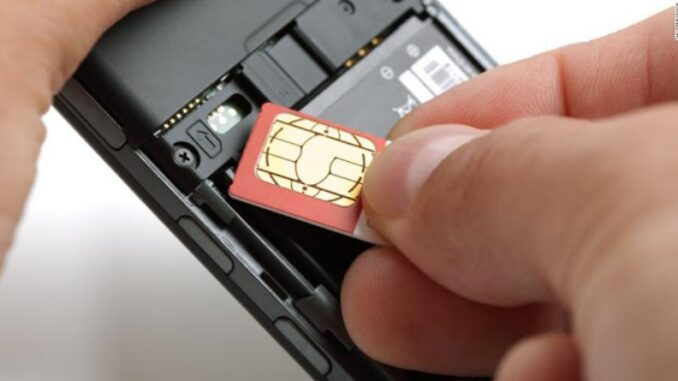
The announcement of the implementation of new SIM (Subscriber Identification Module) registration rules by the Nigerian Communications Commission (NCC) mid-December 2020 is ordinarily a routine exercise by the supervising Ministry of Communications and Digital Economy.
It was hinged on the need to “improve the integrity and transparency of the SIM registration process.” But coming at a time of the second wave of COVID-19 infections in Nigeria, and the anxiety consequently being generated, the public was understandably apprehensive.
The apprehension was accentuated by the tying of the new SIM registration with the possession of the NIN (National Identification Number) managed by the National Identity Management Commission (NIMC). Unfortunately, procuring a National Identification Number has been a long, windy and nightmarish process that many Nigerians have endured and condemned in the past few years.
The ministry and all agencies concerned with this directive ought to be more mindful of its adverse effect on checking the spread of Coronavirus, aside from the direct inconvenience, even suffering, that Nigerians are bound to go through. These phenomena are already manifesting. It is imperative of the relevant government agencies to modify the arrangement of upgrading SIM cards registration to meet with the acceptable standard.
The thought of having to queue, be captured and registered by NIMC sends jitters down the spine of hapless Nigerian, because countless man-hours are wasted in a process that may not be conclusive within a reasonable period owing to logistics problems, and sometimes, corruption in the process. Immediately after the announcement, registration centres filled to the brim foreclosing the possibility of adhering to COVID-19 protocols. The process needs not to be so. In other climes, such NIN registration is seamless and painless for the citizenry.
Now, given the millions of Nigerians who are yet to obtain NIN, the first shock was the two-week deadline given for the exercise. The deadline was bound to engender a rush to NIMC outlets with the attendant stampede, and most dangerously, the impossibility of social and physical distancing. Mercifully, the NCC has extended the deadline to block SIM cards not integrated with NIN to February 9, 2021. But the rush has not abated, as seen in the huge crowd that characterised NIN centres across the country.
Obviously, the deadline is still too short, given the tedious process and enormous grounds yet to be covered. Indeed, the need to give a more elastic deadline has become imperative in an era of COVID-19 protocols. But beyond all that is the overarching need for government to put its house in order in terms of harmonising all the data now at the disposal of various government agencies. It is inexcusable that the job of harmonising these data is constantly pushed to hapless Nigerians. The banking sector under the supervision of the Central Bank of Nigeria (CBN) made Nigerians go through enormous discomfort to obtain the Bank Verification Numbers (BVN); Similarly, Nigerians have gone through SIM card registration multiple times and they are also battling to obtain the NIN. Also, is there no place for Permanent Voters’ Card and even Driver’s Licence to be used to verify identities of SIM owners? Is it rocket science for these same government agencies to harmonise these data? Can’t they set up a central place to exchange data? For how long will the general public be saddled with the duty and responsibility of public officials who are being paid to carry out these assignments? Granted that the general public will be involved in these exercises at some point, it ought to be at a minimum discomfort.
The double jeopardy in this NIN-SIM harmonisation is that for the majority of Nigerians, it cannot be done without breaking COVID-19 protocols put in place by the same government through the National Centre for Disease Control (NCDC). If citizens break the protocols without being reined in by the law, they may not avoid the medical consequences of a spike in infection rate, possible deaths and disruption of lives and livelihoods. Surely there must be safer ways to achieve NIN-SIM harmonisation.
No government agency should compound this conundrum through directives that are not considerate of realities of the day. Indeed NIM-SIM harmonisation should be a continuous exercise, not a one-off, time-bound process. There are other issues raised by the directive: If only Nigerian citizens can be registered for NIN, what happens to non-Nigerians living in the country? Does that foreclose the possibility of their owning SIM cards? What steps are being made to prevent foreigners from illegally procuring NIN and SIM cards? What is the arrangement made for such foreigners?
These questions point to the need for a comprehensive, well-conceived and humane data management system for the benefit of the citizenry and the security of the nation. The first step to achieve that is for all government data collecting and dissemination agencies to harmonise their records. That duty should not be outsourced to the citizenry especially in a pandemic period that has tried their souls.
END

Be the first to comment